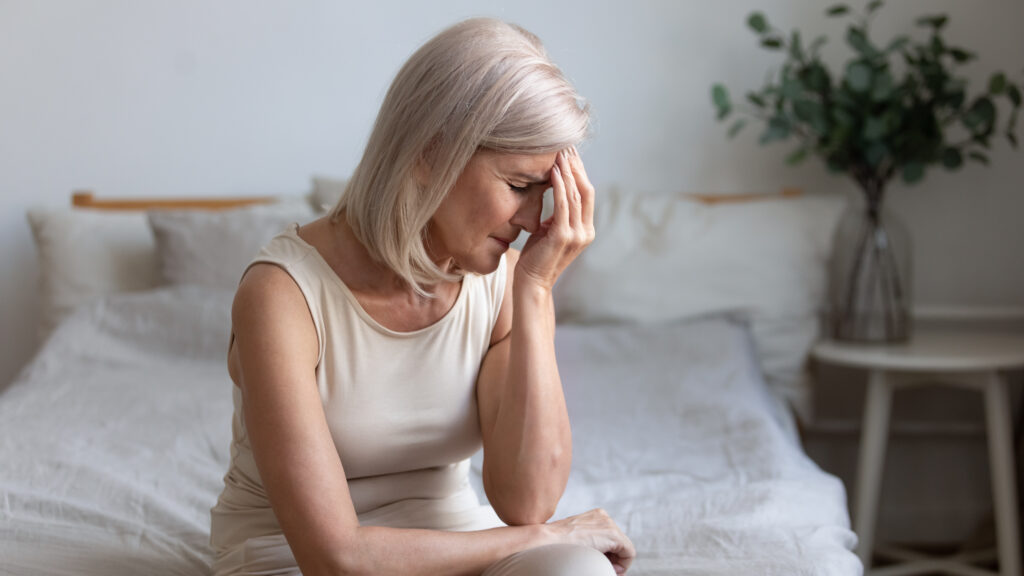Navigating Menopause and Empowering Women Through Education
What Is Menopause?
Menopause is a point in time 12 months after a woman’s last period. The years leading up to that point, when women may have changes in their monthly cycles, hot flashes, or other symptoms, are called the menopausal transition or perimenopause.
The menopausal transition most often begins between ages 45 and 55. It usually lasts about seven years but can be as long as 14 years. The duration can depend on lifestyle factors such as smoking, age it begins, and race and ethnicity. During perimenopause, the body’s production of estrogen and progesterone, two hormones made by the ovaries, varies greatly.
The menopausal transition affects each woman uniquely and in various ways. The body begins to use energy differently, fat cells change, and women may gain weight more easily. You may experience changes in your bone or heart health, your body shape and composition, or your physical function.1
Let’s get straight to the point, Menopause is a natural and inevitable phase in a women’s life. It marks the end of her reproductive years, as the body undergoes hormonal changes. Understanding and support becomes crucial for managing the challenges that come alongside it. Shockingly, research highlights a disconnecting trend: a large majority of women are ill-informed about menopause and its effects. This lack of knowledge can leave women feeling unprepared and overwhelmed as they approach this transformative stage.
A Silent Gap in Education:
The statistics are quite revealing. More than 90% of postmenopausal women never received any formal education about menopause during their school years.2 This absence of knowledge sets the stage of potential discontent between women and their own bodies. When nearly two-thirds of women start seeking information about menopause only after they begin experiencing symptoms 2, it speaks to a pressing need for improved education.

Feeling Alone:
The emotional impact of inadequate education is strikingly evident. Women, using words like “nightmare” and “awful,”2 paint a vivid picture of their experiences during menopause. The journey, meant to be a natural progression, is joined by unnecessary challenges due to the lack of knowledge. These emotional struggles only emphasize the importance of addressing this issue head-on.

Empowerment Through Education:
Amidst these disheartening statistics lies an opportunity for change. By addressing the educational gap, we can empower women to face menopause with greater understanding and resilience. Imagine a world where women are armed with information to recognize symptoms, understand the hormonal shifts, and anticipate changes. With such knowledge, women can confidently approach menopause, knowing that they are well-equipped to manage its impact on their bodies and lives.
A Call for Change:
The statistics don’t lie: women deserve better. Menopause is a natural transition that should be met with confidence and awareness, not fear and confusion. By improving education about menopause, we can transform the narrative surrounding this phase of life. It’s time to bridge the gap, provide accurate information, and offer support to women as they embark on this journey. Let’s ensure that women everywhere have the knowledge they need to navigate menopause with grace and resilience.
[i] What Is Menopause?, National Institute on Aging, September 30, 2021, https://www.nia.nih.gov/health/what-menopause , NP
[ii] Nine in ten women were never educated about the menopause, UCL News,
April 27, 2023, https://www.ucl.ac.uk/news/2023/apr/nine-ten-women-were-never-educated-about-menopause#:~:text=26%20April%202023,a%20new%20UCL%2Dled%20study , NP